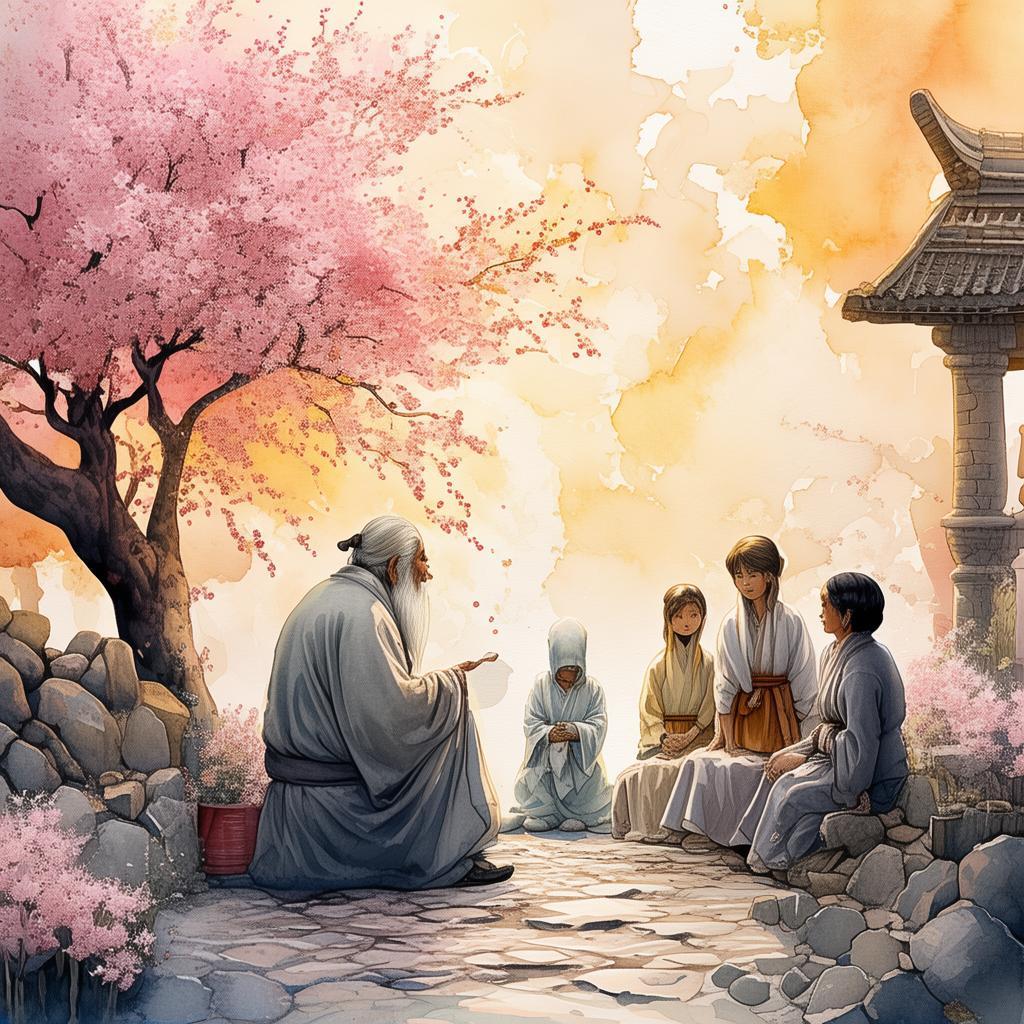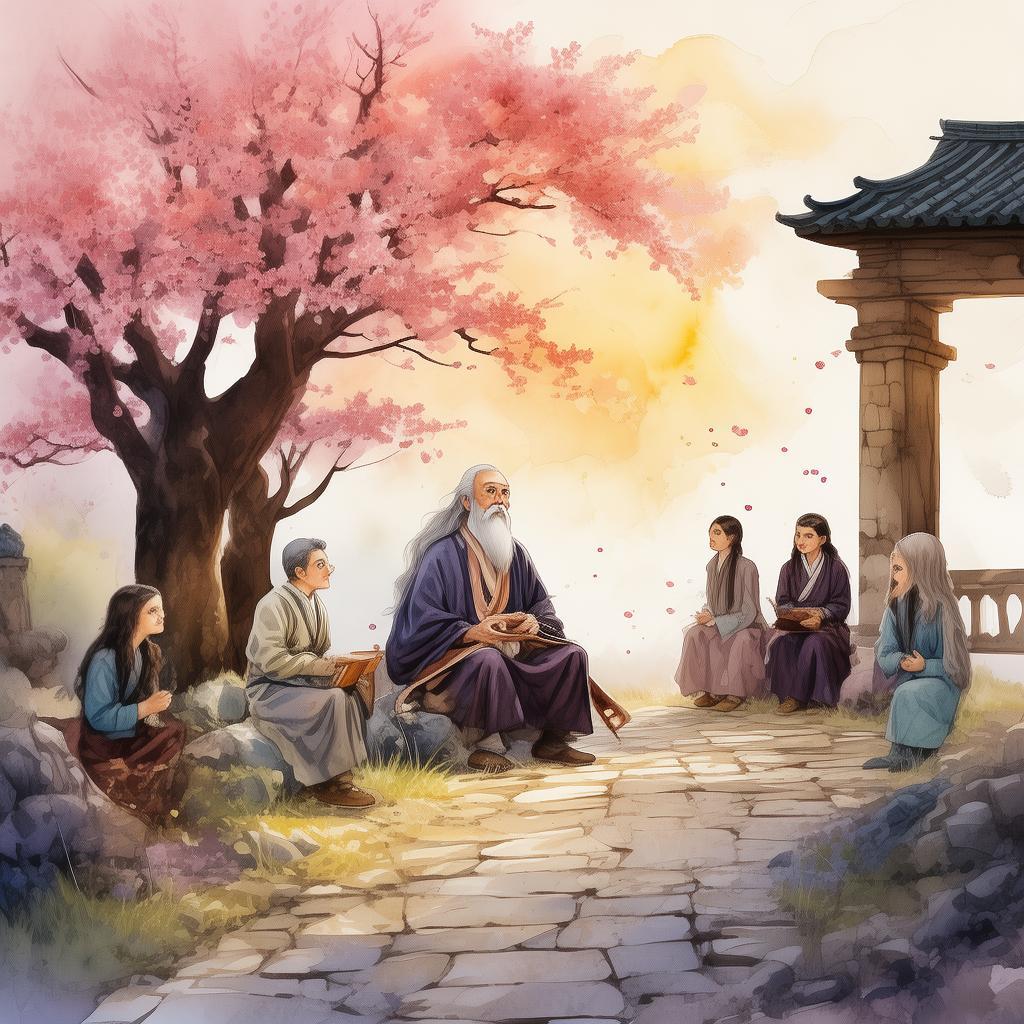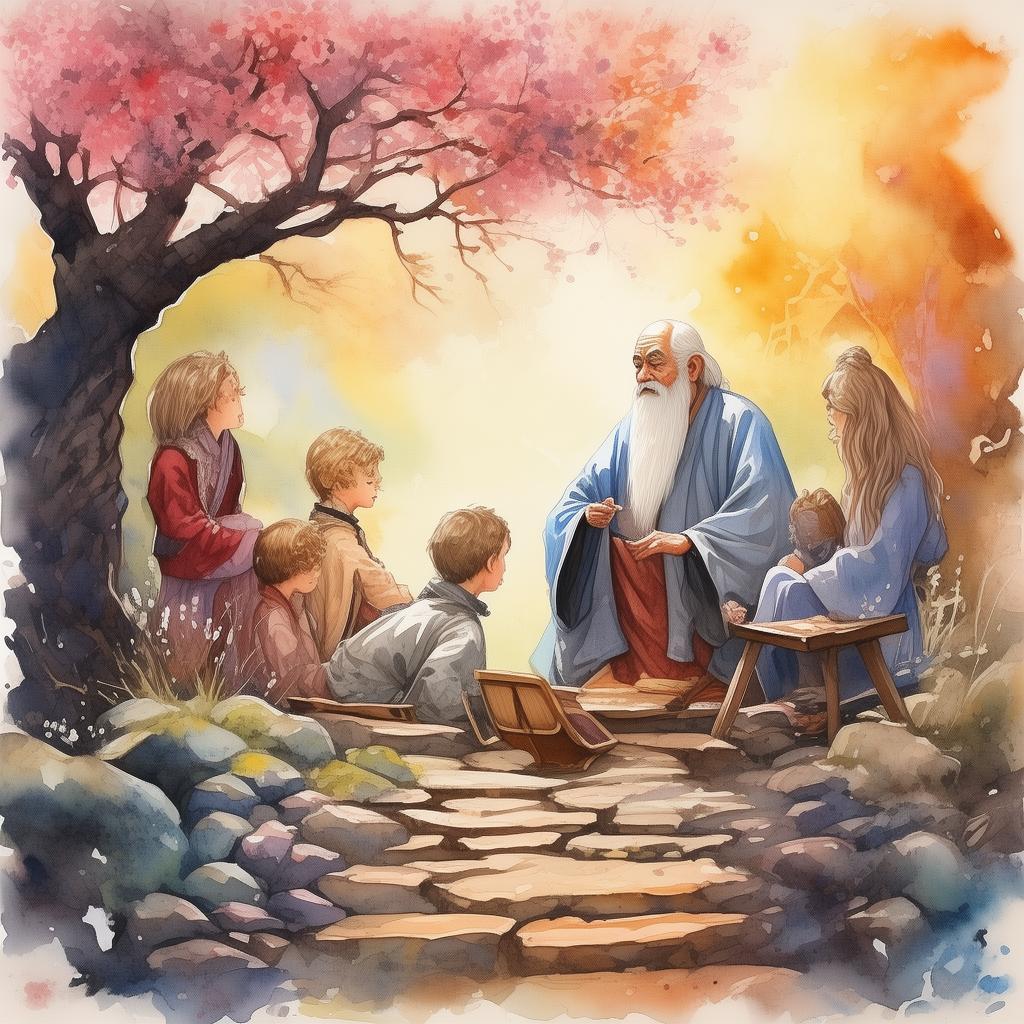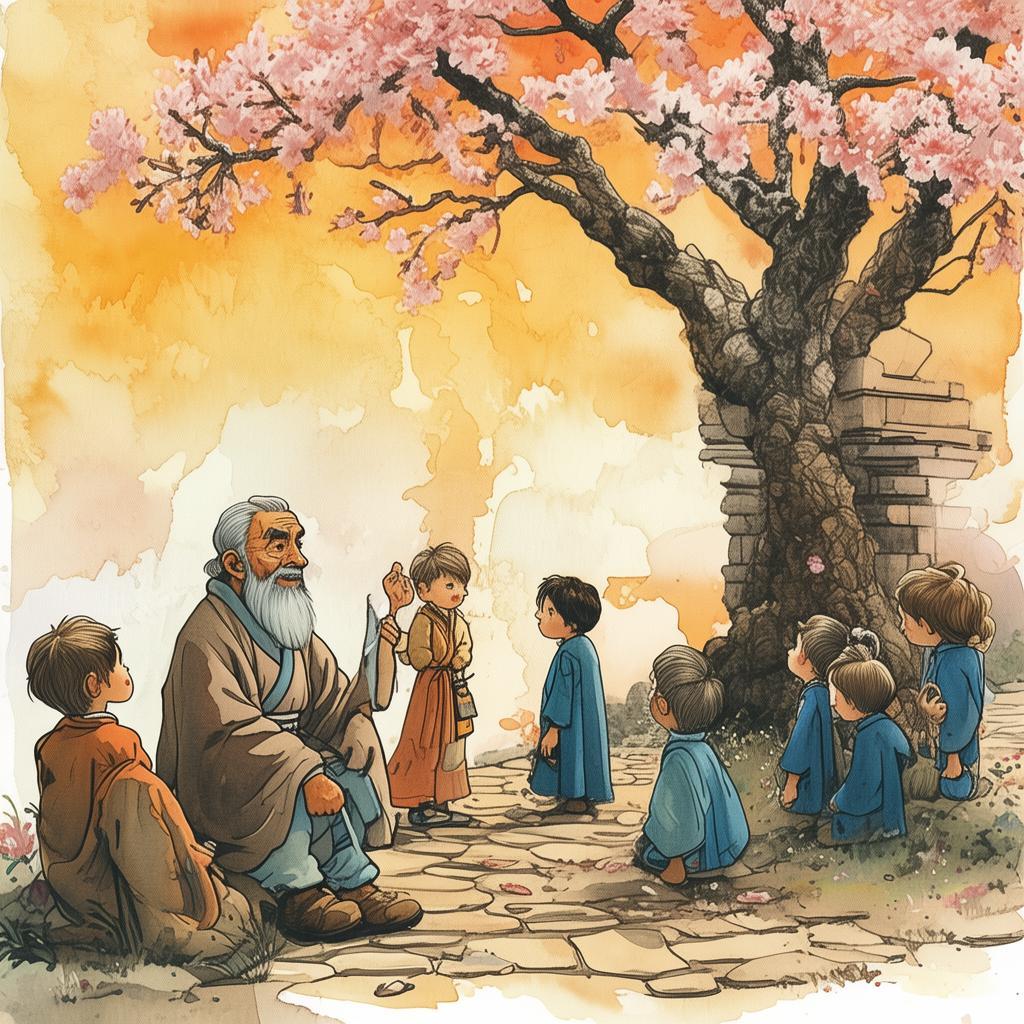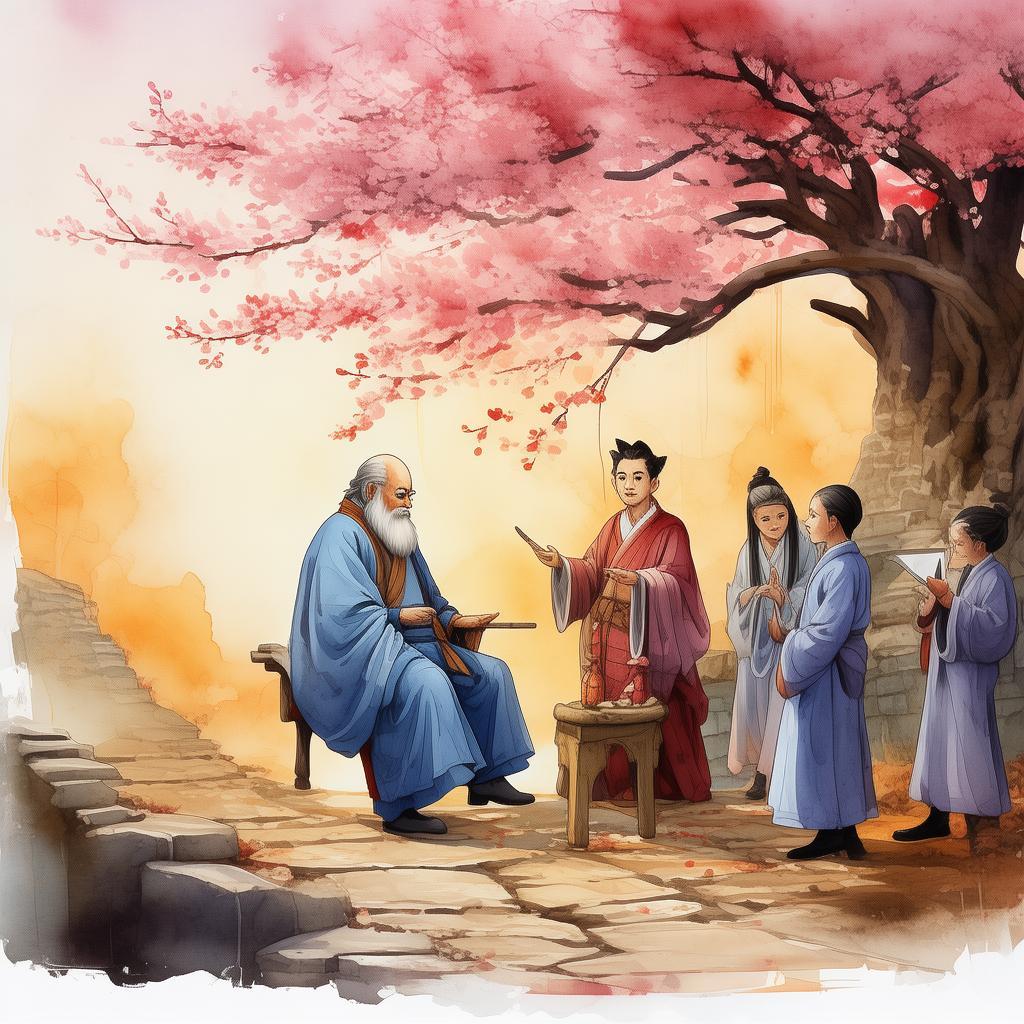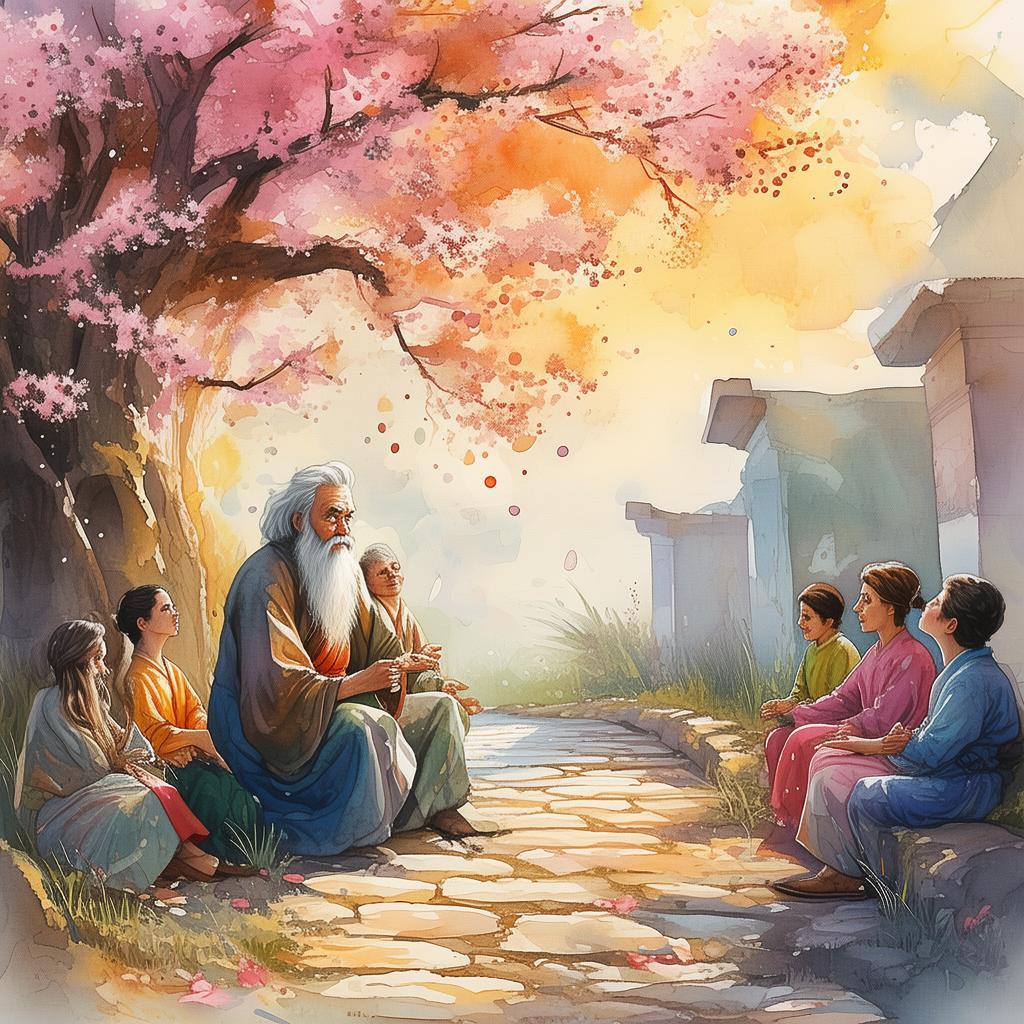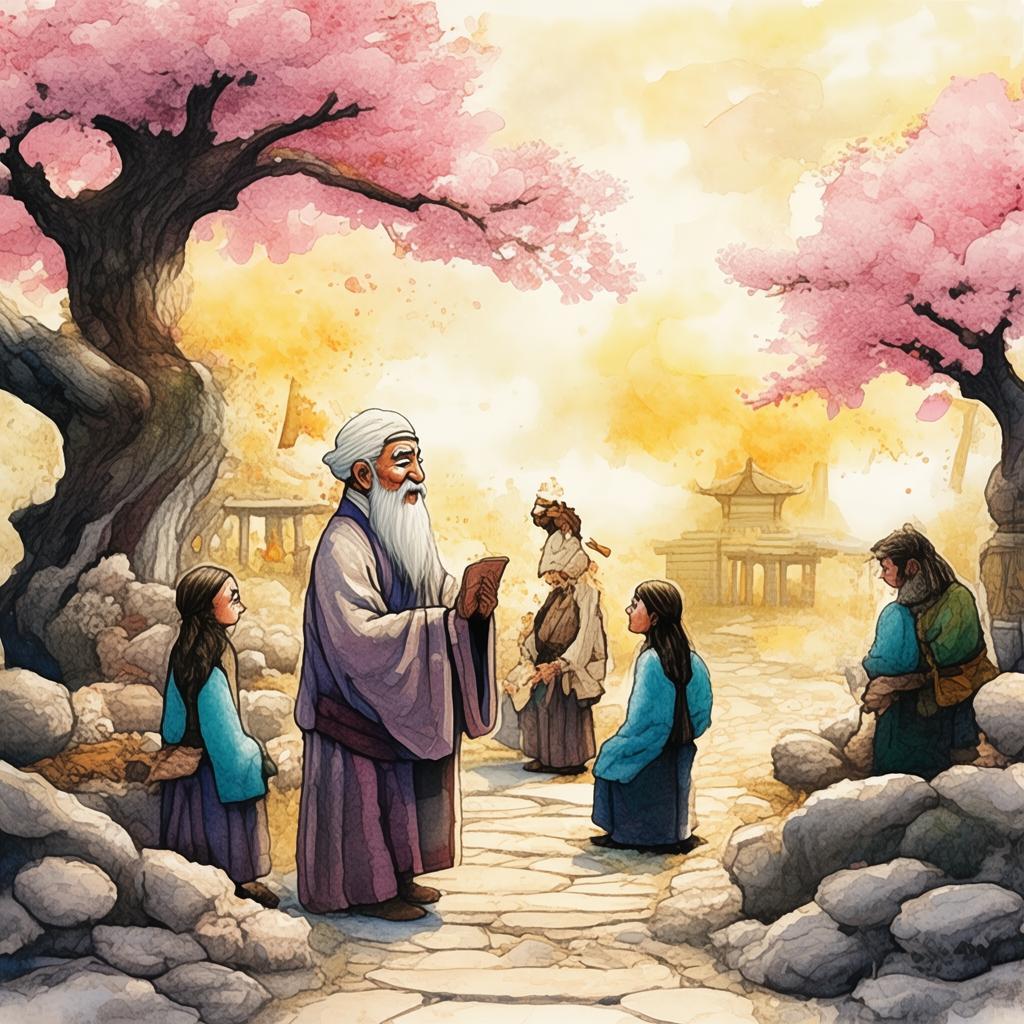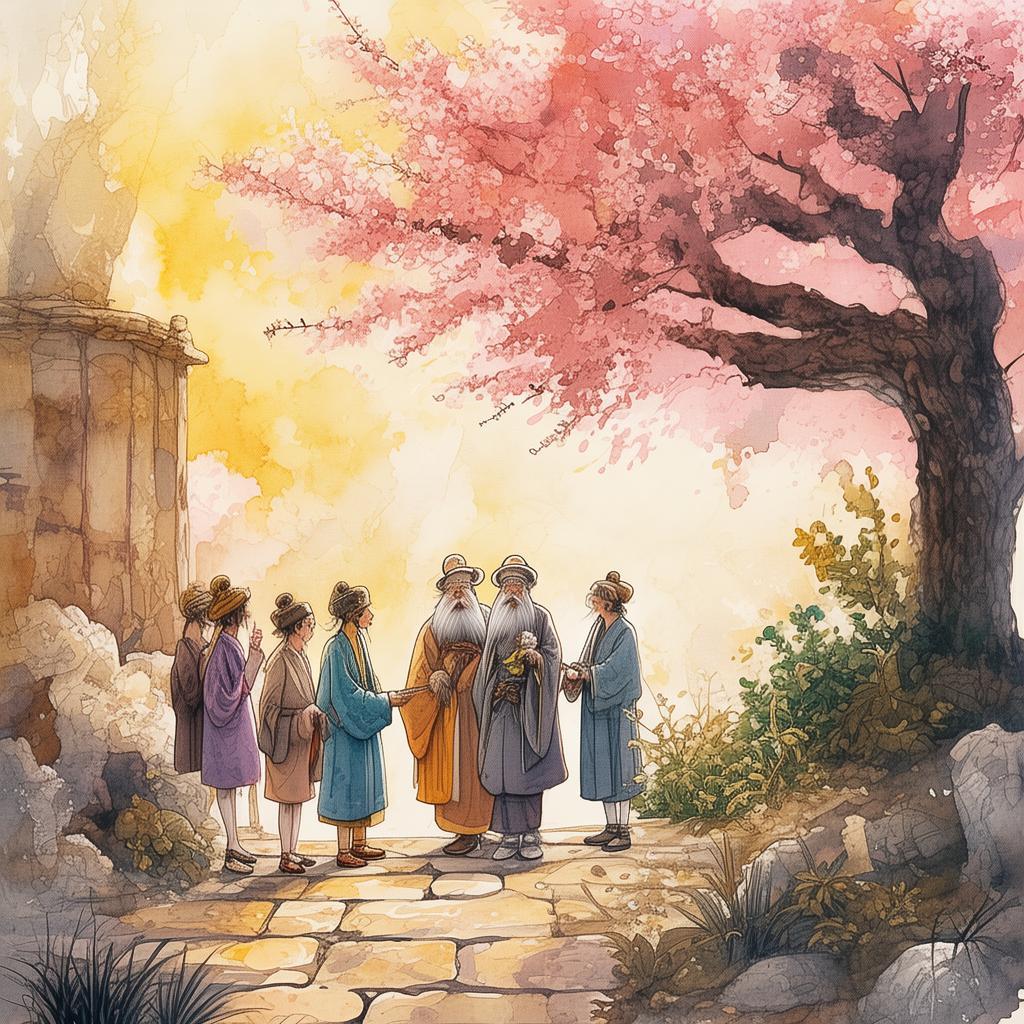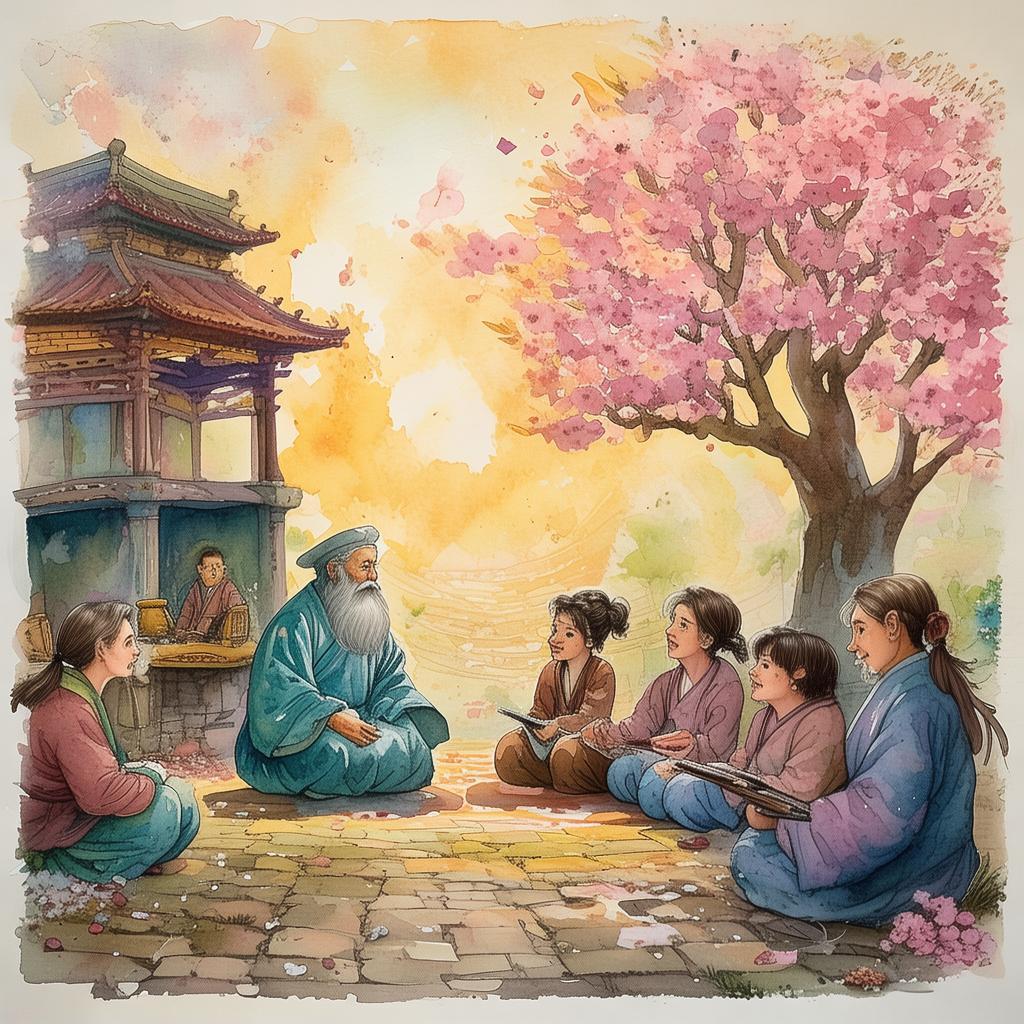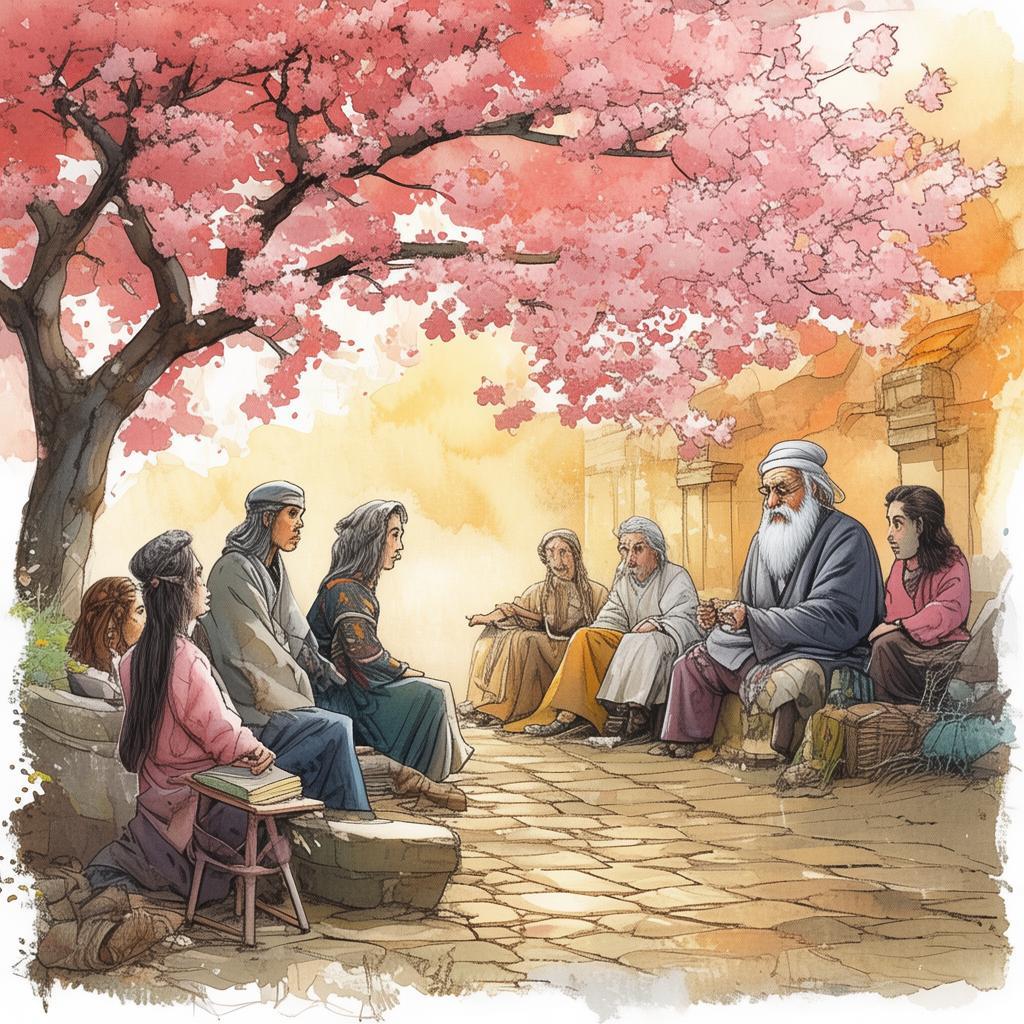The Echoes of Loss: A Mother's Melody of Grief and Grace
In the tranquil village of Liangshan, nestled among the whispering pines and the rolling hills, there lived a woman named Liang Mei. She was known for her melodious voice, a gift that had brought joy to many a wedding and celebration. Yet, beneath the surface of her harmonious life, there was a sorrow that no one could hear, a melody of grief that only she could sing.
The village was abuzz with the news of a grand wedding to be held at the old temple, and Liang Mei was chosen to perform the traditional melody of grace, a song that symbolized the union of two souls under the watchful eyes of the ancestors. It was a moment of pride for her, but also a reminder of the void that had been left in her life since the untimely death of her daughter, Lingling.
Liangling had been the light of Liang Mei's life, her little melody of joy that filled the house with laughter and song. The memory of her daughter's bright smile and infectious giggle was the only comfort in the depths of Liang Mei's sorrow. But time had passed, and the melody of her daughter's life had turned into a haunting lamentation.
As the day of the wedding approached, Liang Mei found herself drawn to the temple, a place that once echoed with the laughter of her daughter. She spent hours there, her fingers tracing the cold stone of the ancient alter, her eyes reflecting the distant past. It was there that she felt the weight of her loss, the unyielding pain that seemed to consume her soul.
The night before the wedding, as the moon cast its silver glow over the temple, Liang Mei decided to perform her own private ritual. She sat down at the ancient lyre, her fingers trembling as they danced across the strings. The melody that emerged was a hauntingly beautiful lamentation, a song that spoke of love, loss, and the enduring power of grace.
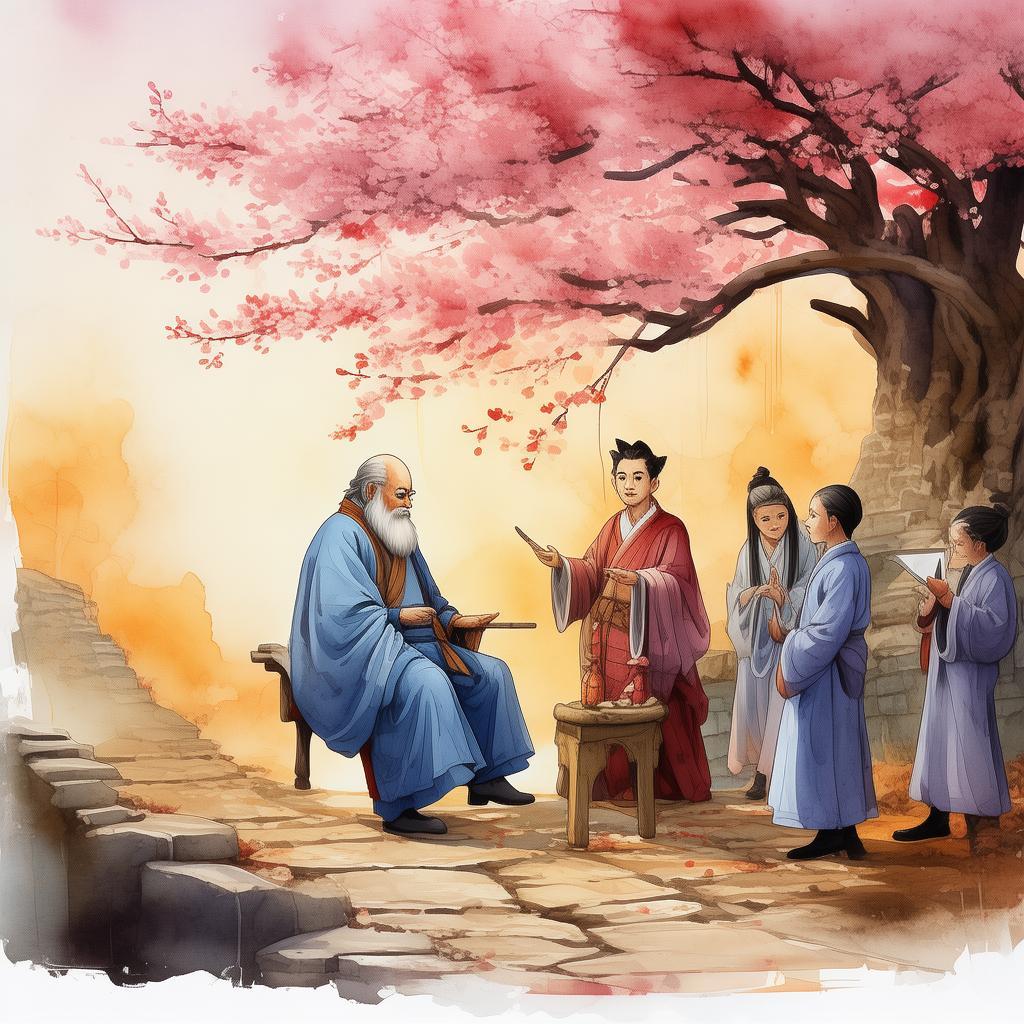
The villagers, unaware of Liang Mei's private ritual, were drawn to the temple by the sound of the melody. They gathered, their eyes wide with surprise, as the haunting notes filled the air. Liang Mei's voice was raw, filled with the emotion of a thousand heartbeats, each note a drop of her sorrowful tears.
Amidst the crowd, there was a young woman named Yun, a musician who had come to the village to seek inspiration. She had never heard a melody so raw, so full of emotion. It was as if the music had a life of its own, weaving its way through the hearts of everyone present. Yun felt a connection to the music, a sense of shared grief that transcended time and space.
As the melody reached its crescendo, Liang Mei's voice grew faint, her body overcome by the weight of her emotions. Yun, moved by the experience, approached Liang Mei and offered to help her compose a new melody, one that would celebrate the life of Lingling and the grace that had brought her back to the temple.
Together, they worked through the night, weaving the raw emotion of Liang Mei's lamentation with the hope of Yun's music. By dawn, they had created a new melody, one that was both a tribute to the past and a testament to the future. It was a song of grace, a melody that spoke of love, loss, and the enduring power of hope.
The next day, as the wedding celebrations began, Liang Mei performed the new melody, her voice filled with a newfound strength. The villagers listened, their hearts touched by the beauty of the song. Yun played alongside her, her music harmonizing with Liang Mei's voice, creating a symphony of love and loss.
As the melody reached its final note, the villagers felt a profound sense of release. Liang Mei, too, felt a shift within her, a subtle change that allowed her to embrace the memory of her daughter with a newfound grace. She realized that the melody of her grief had become a bridge to the future, a testament to the love that had once filled her life.
The Echoes of Loss: A Mother's Melody of Grief and Grace became a legend in Liangshan, a story that spoke of the enduring power of love and the transcendent grace that can heal even the deepest wounds. It was a story that resonated with everyone who heard it, a reminder that even in the face of loss, there is always hope.
✨ Original Statement ✨
All articles published on this website (including but not limited to text, images, videos, and other content) are original or authorized for reposting and are protected by relevant laws. Without the explicit written permission of this website, no individual or organization may copy, modify, repost, or use the content for commercial purposes.
If you need to quote or cooperate, please contact this site for authorization. We reserve the right to pursue legal responsibility for any unauthorized use.
Hereby declared.
